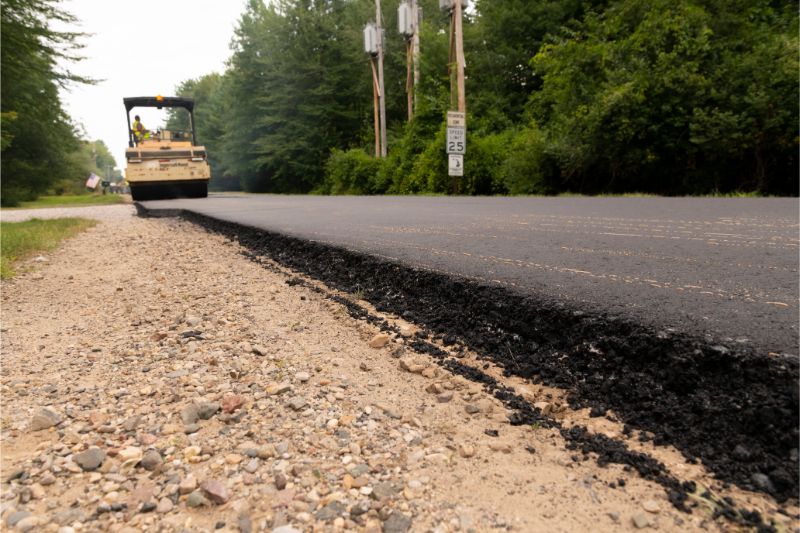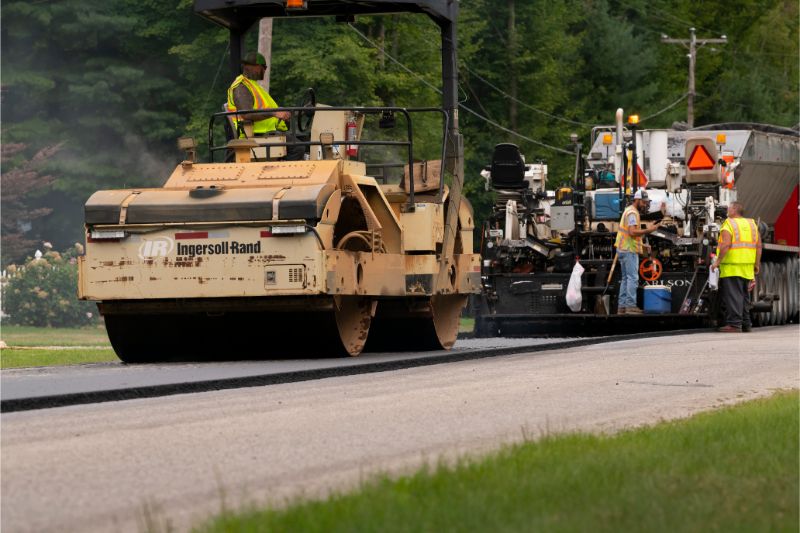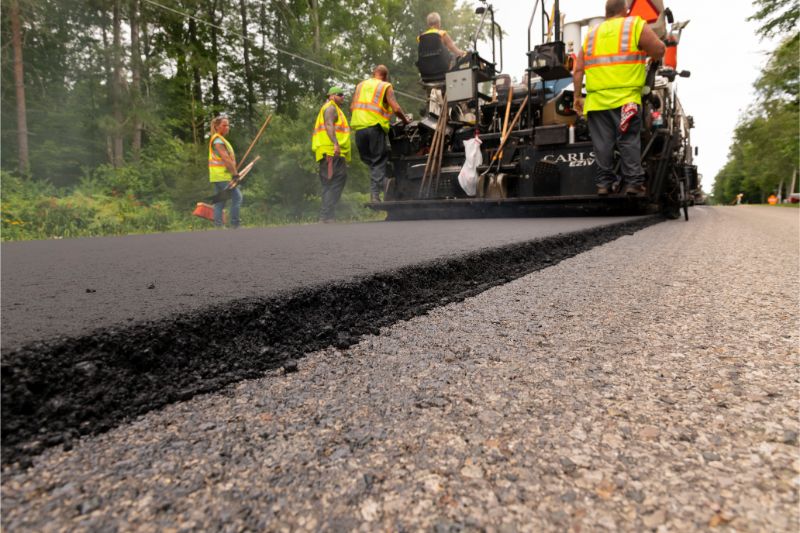Central Asphalt Paves Dow’s Elvaloy™ into RPMA Overlays
BY Sandy Lender

Central Asphalt Inc., Mt. Pleasant, Michigan, performed six recycled plastic modified asphalt (RPMA) projects in 2019 with what Vice President Aaron White described as no noticeable changes in production. The team used liquid asphalt cement (AC) binder with ELVALOY™ RET asphalt modification technology from Dow Inc., Midland, Michigan, blended and provided by Bit-Mat Michigan, Bay City, a Klink Group of Companies entity.
According to a Dow spokesperson, the “projects combined to use more than 10,400 pounds of recycled plastic, which is equivalent to the weight of more than approximately 769,500 plastic grocery bags.”
Grocery bags, which fall into the high-density polyethylene (HDPE) plastics category, represent a target recycling stream. Alex Hoffer of Hoffer Plastics Corporation shared a host of responsible plastic sources in the article “Source Plastic into 2020,” which you can read at TheAsphaltPro.com. In the three-part sustainability series from Malcolm Swanson of Astec Inc., which you can read at TheAsphaltPro.com, he includes a discussion of five specific categories of products finding their way into asphalt pavement mixes via recycling:
- recycled asphalt pavement;
- asphalt roofing shingles;
- rubber tires;
- plastics; and
- steel/iron plant componentry.
Here, we take a look at blending HDPE plastics into asphalt pavement mixes for Central Asphalt’s projects in the Great Lakes Region of Michigan. As Swanson stated in the third part of his series, “Industry Incorporates Sustainability at Asphalt Production Plants,” all plastics are polymers, but not all polymers are created equal. Some are better suited to breaking down for blending. Once broken down, they often require 2 to 4 percent of Polyphosphoric acid (PPA), by weight, to improve blending. This concept is in play with the asphalt modification technology from Dow, which we’ll abbreviate “Elvaloy” for this article.

Central Asphalt produced the RPMA mix at conventional polymer-modified AC temperatures, according to VP Aaron White.
Central Asphalt Uses RPMA on Six Overlays
Dow’s infrastructure & construction marketing manager, Nishant Karamchandani, stated the company derives its high-density and linear-low-density polyethylene from “a fairly clean stream we’re getting from our partners.” From there, the plastic pellet, liquid AC, and Elvaloy, added by weight of binder, are blended using the wet method in a shear mill before delivery to the asphalt plant for mixing. Using the shear mill, “[o]ne batch of ELVALOY™ RET takes as little as 2-4 hours to create, compared to an average of 30 hours for one batch of SBS,” according to the company.
Asphalt Industry Incorporates Sustainability at Asphalt Production Plants – Part I
While the use of Elvaloy technology is designed to allow asphalt batches at temperatures up to 30 degrees Fahrenheit lower than other options, Central Asphalt’s White said they maintained typical hot-mix asphalt (HMA) temperatures for all projects.
White shared that the projects were all 20 to 35 miles from the BMG parallel flow asphalt plant that produced the RPMA mix. Three of public roads were overlays at 1.5 inches; one was a Thinlay at ¾ inch. Both parking lots were placed in two lifts of 2 inches each. The 2-inch top course incorporated the RPMA.
The projects using RPMA were these:
- Waskevich Lane in Larkin Township incorporated over 1,600 pounds of recycled plastic in 2 lane miles.
- Mid-bay County Line Road, also in Larkin Township, incorporated over 1,600 pounds of recycled plastic in 2 lane miles.
- Julie Ann Drive, also in Larkin Township, incorporated over 800 pounds of recycled plastic in 1 lane mile.
- Badour Drive in Bullock Creek incorporated over 400 pounds of recycled plastic in one-half lane mile.
- The Global Dow Center parking lot in Midland incorporated over 2,300 pounds of recycled plastic in 16,000 square yards.
- The Saginaw Valley State University (SVSU) parking lot in Frankenlust Township incorporated over 4,100 pounds of recycled plastic in 14,500 square yards.

Three of the RPMA overlays were placed at 1.5 inches; the fourth was a ¾-inch Thinlay.
Observations of RPMA
Karamchandani spoke of the optimism stemming from the recent projects with entities such as AASHTO and NAPA requesting Dow to present information on a national stage.
“The engagement level is up,” he said. “What’s exciting is what we’re trying to do as a long-term play. Take the plastic out of the landfill, add the Elvaloy, and address the performance characteristics for a longer road life.”
White was able to attest to the early benefits. “Klink did the blending and it came to us already blended,” he shared. He explained the mix incorporated the binder at a standard 4 to 5 percent.
“At first, we were nervous how it was going to react, but were pleasantly surprised,” White said. “From loading it off the trucks to moving it through the pipes at the plant to mixing to dumping the haul trucks to moving through the paver, everything worked like normal. From what my superintendents said they were treating it like a polymer-modified mix.”
He shared that the paving team achieved compaction with no complaints, merely trying to get on the mat “a little earlier” as they would with a polymer-modified mix.
Asphalt Pavements: Tracking America’s Most Recycled Material
Dow was included on FORTUNE’s 2019 “Change the World” list. This is a ranking of 52 companies that have made an important social or environmental impact through their profit-making strategy and operations. Listed as number 26 in the ranking, Dow was recognized for its program to pilot the use of recycled plastics in roads as part of the company’s long-standing commitment to reduce plastic waste and drive sustainability solutions.
Dow CEO Jim Fitterling said, “By developing solutions such as this, we are demonstrating that plastics, from design to disposal, have tremendous value and can continue to benefit people and society in new ways.”
Dow has collaborated with the value chain to build nearly 100 km of asphalt roads containing recycled plastic across Asia, Europe, North America and Latin America. The projects, some of which are enabled by the Elvaloy technology discussed above, have diverted nearly 200 metric tons of plastic from becoming litter or entering a landfill, according to an August 2019 press release.
